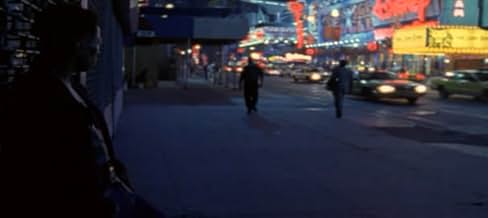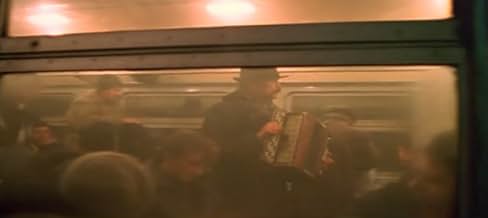Adicionar um enredo no seu idiomaA look at the people who live precariously, but with an unusual level of resourcefulness and imagination, in four gigantic urban agglomerations: Mumbai, New York City, Moscow and Mexico City... Ler tudoA look at the people who live precariously, but with an unusual level of resourcefulness and imagination, in four gigantic urban agglomerations: Mumbai, New York City, Moscow and Mexico City.A look at the people who live precariously, but with an unusual level of resourcefulness and imagination, in four gigantic urban agglomerations: Mumbai, New York City, Moscow and Mexico City.
- Direção
- Roteirista
- Prêmios
- 5 vitórias no total
Avaliações em destaque
The documentary embodies the director's curiosity about the daily struggle to survive in those new megacities, about those individuals one might pass by on the street. The cumulative effect of his stories is that our systems have "created absurdity" as one man states in the film--Superbarrio Gomez.
Critical questions from the audience that night can be divided into two types, formal and ethical: 1. Formal. The film reconstructs scenes deliberately, and the subjects are paid. The director's method is to wander a city for a week or so, getting to know people. After a further relationship with them, he gains enough trust and cooperation even "friendship" as he says to direct them to act as themselves in a typical, "authentic" portrayal of their lives. Other film-makers in the audience were rather skeptical that this could even be called a documentary. But Michael Glawogger holds that it is authentic and that it is no more a fiction than any documentary-- that it is impossible to film private life without altering it in some way just by the presence of the camera. People who know that they being filmed begin to act as though they are on film. And the camera always selects and frames and excludes. Film is a subjective point of view as much as it is an objective record, whether as documentary or as narrative fiction. The only difference here, the director insisted, is that he deliberately foregrounds the process of construction, allowing the viewer to readily access the fact that this is a reconstruction. That a room full of film-makers had to be reminded of these basic insights only shows their theoretical naivety. It as if the whole profession needs a refresher trip back to grad school.
2. Ethical. Does paying the subject encourage them to exploit the film-maker? Or conversely, does it exploit the subject? Why were only poor people filmed? Wouldn't a more balanced portrait of megacity inhabitants be more appropriate? (a banal call which illuminated the real issue: this film disrupts our class blindness and evokes the mysteries of class division). The audience at a documentary festival is pretty much middle class, and they gaze in shock at the hidden life of the underclass on the screen. Then they express dismay that the film is not as "balanced" as TV supposedly is. But this film in fact supplies the other side which has been absent in the so-called balanced view of globalized megacities. Another woman mistakenly accused the film of focussing only on brown and black bodies in the 3rd world. She was wrong factually about both conditions: the semi-naked abject bodies of white drunks in Moscow are shown extensively; white people in NYC are shown a little. Are these instances of brown people in the 3rd world? Again this kind of criticism simply echoes a formulaic political objection to a 1st world gaze, without actually addressing the film we just watched. Some cultured middle-class people of color, viewing the film critically, might too easily confuse their discomfort with class differences for their more accustomed experience of ethnic or racial differences. The film was made precisely for these kind of ethical issues to be placed on the agenda of international discussion. I think that director Glawogger, a white male from Austria, ought to be given some credit for the formal and political (elsewhere known as "ethical") sensitivity that shines through his documentary. He claims that his subjects are treated with dignity. Yet the audience made it clear that the real subject of this film is more disruptive.
Você sabia?
- Citações
opening text overlay: And perhaps in abodes of poverty, where health, learning, shelter and security are not birthrights, the soul is not a birthright, either. - William T. Vollmann
- ConexõesEdited into Life in Loops (A Megacities RMX) (2006)
- Trilhas sonorasEk Ho Gaye Hum Aur Tum
(Soundtrack of the movie 'Bombay')
Performed by Remo Fernandes
Courtesy of Polygram GmbH
Principais escolhas
Detalhes
- Tempo de duração
- 1 h 30 min(90 min)
- Cor
- Proporção
- 1.66 : 1

















